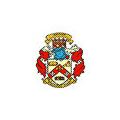Studies & Degrees in Instrumentation Technology
Choose where you would like to study Instrumentation Technology:
FranceThe United StatesInstrumentation Technology Study Programs
Almost all fields of industry have a need for the control of parameters and the maintenance of measurement equipment that are needed for the automation of many different industrial processes. Accurate and reliable measurement readings are vital in any industry because they lead to better quality goods and much more efficient working systems. Thus, it is very important that these aspects of production are addressed with great skill and proficiency. This is the phase of industry that is commanded by Instrumentation Technology.
A course program on instrumentation technology will train future information technology engineers to analyze problems that occur in controls used in various automated manufacturing processes. Topics of study include electronic and pneumatic control systems, diagnosis and adjustment of available control loops, process computers and their applications, programmable logic controllers, and simulation of different types of processes.
Students of instrumentation technology will also be trained to be very proficient in the calibration of modern instrumentation equipment. They will be given hands on training on troubleshooting the many problems that might be suffered by both electronic and electrical instruments and devices. They will also be trained on how to properly maintain these devices to prevent unwanted difficulties from cropping up at inopportune times. Additionally, instrumentation technology students will also be trained to keep pneumatic and hydraulic equipment in very good working condition.
More specific subjects that are covered in an instrumentation technology course include microcomputer applications, DC and AC circuits, solid state circuits, and digital applications. The physics of instrumentation, principles of industrial measurements, applied physics, and Measure control theory are also given due attention. Advanced courses cover major subjects such as digital applications, measurement and flow calibration, health, environment, and safety regulations, analytical instrumentation, and AC and DC motor controls.
Typical companies that employ graduates of instrumentation technology are oil and petroleum producers, electronics manufacturing corporations, pulp and paper companies, chemical companies, pharmaceutical and medical equipment manufacturers, food and beverage producers, utility agencies such as water and electricity companies, car manufacturers, and aerial and aerospace firms.
Among these various fields of industry, the instrumentation technology engineer has many varied responsibilities. Duties may include (1) the design of specific control systems which include determining the size and the appropriate measurement gauges for the system; (2) the recommendation of possible modifications needed to improve measurements and control systems and to implement these recommendations once approved; (3) the programming and configuration of microprocessor based control and measurement systems; and (4) provide technical support for sales representatives of electronics and gadget production companies.
Most instrumentation technology engineers work indoors, especially those that are employed for design projects. Those who are mainly involved in design usually work during standard workday hours, with occasional overtime work done for projects with very tight deadlines. Those who are employed in construction and maintenance projects however will usually get to work outdoors for when they need to be at the construction site or at the processing facility where the projects are located. Instrumentation technology engineers specializing in maintenance are usually on call for when vital systems bog down and need troubleshooting services.


